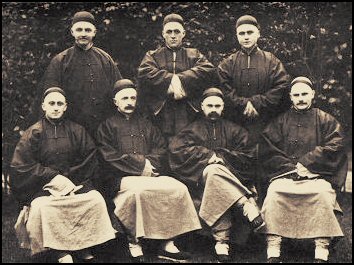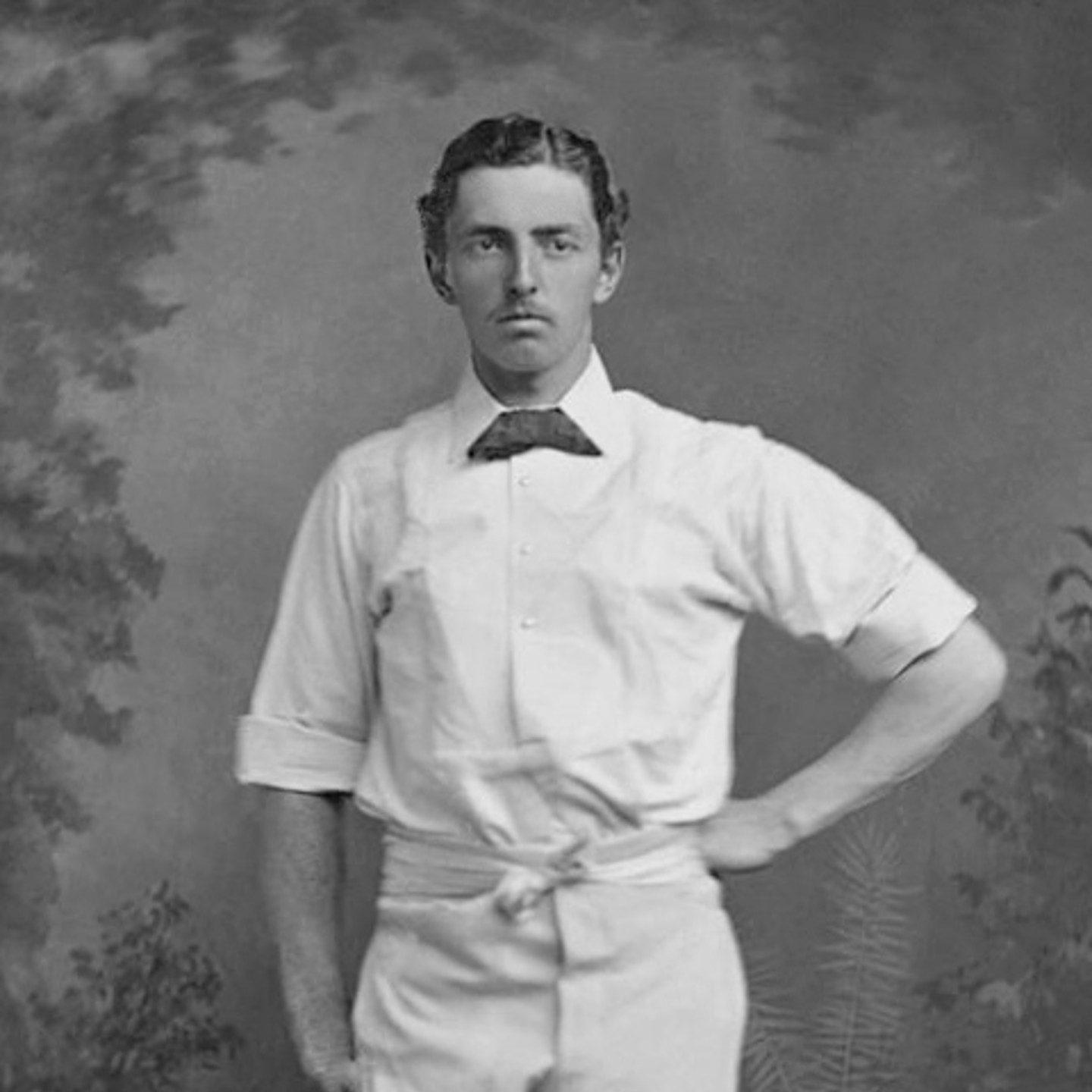C.T. Studd once said: “Let us not glide through this world and then slip quietly into heaven, without having blown the trumpet loud and long for our Redeemer, Jesus Christ. Let us see to it that the devil will hold a thanksgiving service in hell, when he gets the news of our departure from the field of battle.” A challenging thought indeed – that the devil would rejoice at Studd’s death, glad to see the missionary depart for heaven because of the ‘damage’ he did in his time on earth as he won men and women to Christ.
C.T Studd was one of the Cambridge Seven, a group of seven young British men who became Christian missionaries to China in the late 19th century. The name is a misnomer because although six of them were Cambridge graduates, one was not – he was from the Royal Military Academy. The group included Arthur T. Polhill-Turner, Stanley P. Smith, Montagu H. Fowler, Dixon E. Hoste, C.T. Studd, William W. Cassels, and Griffith John.
At Cambridge, the six were known for their athletic and academic achievements. However, they had been challenged by one of their number, D. E. Hoste, to devote their lives to missionary work in China. After much prayer and consideration, all seven men felt called to accept the challenge. The group left for China in 1885.
Studd was the most famous of the group as he represented England at cricket. He actually played in the original Test against Australia from where the Ashes were first named. Wisden, the recognised official record of English cricket, commented: “Unhappily for English cricket, C. T. Studd was not seen in the cricket field after 1884. Feeling a call for missionary work, he went out to China in connection with the China Inland Mission.” The record shows the feeling at the time that he had ‘wasted’ his sporting talent. Studd’s approach was rather different: “What is all the fame and flattery worth ... when a man comes to face eternity?"
Studd had been awakened spiritually in 1884 when his brother George was taken seriously ill. Studd had to admit that since his conversion six years earlier, he had been in "an unhappy, backslidden state". As a result of the experience, he said, "I know that cricket would not last, and honour would not last, and nothing in this world would last, but it was worthwhile living for the world to come." He gave away his inheritance of £29,000 (which one source says would be over £4,000,000 today) to the Moody Bible Institute, to George Müller’s work for orphans, for the poor in Whitechapel, London and for the Salvation Army in India.

God’s Strange Promotion Plan!
Oddly enough, the greatest impact made by the Cambridge Seven came before they even left for China. Mission work at that time was not on the agenda of many churches. In 1885, the CIM had only 163 missionaries, and the growth of the CIM was slow. Few in England were interested in China mission. Fewer still had even heard of Hudson Taylor's China Inland Mission. Perhaps especially in universities like Cambridge there were not many students who were even deeply committed to the Lord Jesus. And even if they did answer God's call to be missionaries, they wanted to follow the paths blazed by David Livingstone in Africa or William Carey in India.
But with the Cambridge Seven we see the way that the Lord can move in His sovereignty with His master plan. After their acceptance into the China Inland Mission and before they left for China, the seven toured England and Scotland, preaching and appealing to their listeners to follow their example and follow Christ. They toured university campuses holding meetings for the students. The record of their departure became a national bestseller. Their influence extended to America, where it led to the formation of Robert Wilder's Student Volunteer Movement.
The conversion and example of the seven was one of the grand gestures of 19th-century missions, making them religious celebrities. As a result, their story was published as "The Evangelisation of the World" and was distributed to every YMCA and YWCA throughout the British Empire and the United States.
They helped catapult the China Inland Mission from obscurity to "almost embarrassing prominence". Their work helped to inspire many recruits for the CIM and for other mission societies. When the Seven left for China in 1885 after their speaking tours, the CIM had 163 missionaries; that was doubled by 1890 and reached some 800 by 1900 – representing one-third of the entire Protestant missionary force in China.
C.T. Studd must have the final word:
“Only one life 'twill soon be past.
Only what's done for Christ will last.”“Some wish to live within the sound of a chapel bell,
I want to run a rescue shop within a yard of Hell.”
Source: Wikipedia
Images
Charles Studd. (2023, January 17). In Wikipedia. https://en.wikipedia.org/wiki/Charles_Studd
Charles Studd. (2023, January 17). In Wikipedia. https://en.wikipedia.org/wiki/Charles_Studd










